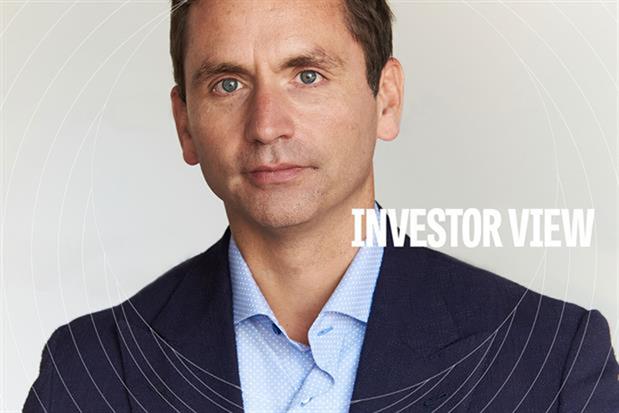Generally, the big tech companies sailed through the Q4 results season with ease.
Microsoft, Apple, Alphabet/Google and Amazon all smashed through analyst expectations. Apple’s quarterly profits, for example, came in 10% ahead of expectations, despite losing $6 billion in revenue due to supply chain issues.
The message generally from big tech was that not only are we doing well now but we expect to continue to grow (Amazon was a little more mixed but breaking out the advertising business, which generated nearly $10 billion revenues in Q4, helped sentiment).
It was a message that the markets liked, and responded by boosting the values of the shares.
The one exception to this positive tone was Meta. Its share price fell more than 20% on the back of results perceived to be lacklustre, the first ever decline in Facebook’s daily average users (DAUs), poor guidance and what was perceived to be a disastrous conference call about the results with analysts.
More than $200 billion was wiped off the market capitalisation of the company, which also owns Instagram, WhatsApp, Messenger and Oculus.
The question for investors for now is whether this fall represents a buying opportunity?
For the tech space—and the advertising world, given Meta’s importance to advertising with more than $100 billion in annual ad sales—there are more fundamental questions.
One thing to say is that, to misquote an idiom, one quarter’s results (or guidance) does not make a company.
Yes, the fall in DAUs (by one million, quarter on quarter) was unwelcome and Meta’s Q1 guidance of 3-11% revenue growth appears shockingly low when compared with 37% revenue growth for 2021 and 20% for Q4 (the wide range of the guidance also probably unsettled the markets).
Yet, as Meta pointed out, Q1 2022 is coming off a tough comparison of 48% revenue growth for Q1 2021, a quarter in which Apple’s iOS 14.5 changes had not taken effect.
The company also pointed to issues such as supply chain disruption and foreign exchange changes as headwind factors affecting revenue growth.
Nevertheless, the results were unsettling for several reasons.
Three reasons for Meta to worry
For a start, there are the fears over the effect of TikTok, which was often highlighted in the earnings call (one analyst noted TikTok had been mentioned nearly a dozen times).
The lingering concern, namely that the more attractive younger audiences are all at TikTok, and Met is becoming the realm of parents and grandparents, has been brought to the surface, especially given the fall in DAUs.
TikTok has now emerged, almost overnight, as a major threat to the Meta story.
That leads on to a second point. There has always been an issue with transparency over the effectiveness of social media, especially round attribution models.
However, so the argument goes, advertisers always felt it safe to use Meta in part because nobody ever got fired for using Facebook.
The question now is whether these advertisers continue to stick by the platform or—potentially more damaging—spending money on Facebook is increasingly seen as a questionable, much in the same way that spending money on television was seen pre-pandemic (and possibly now).
There are also wider questions. As highlighted above, Meta’s performance was an outlier, not only with the other big tech companies but also Snap, which posted much better results—and guidance—than expected.
The comparison with Snap is an interesting one. Back in Q3, both Meta and Snap warned of headwinds from Apple’s iOS changes.
Yet Snap seems to have weathered the impact of Apple’s changes better and more swiftly, with its Q4 revenues growing 42% year on year.
The impression given is that Meta is struggling more with the impact of Apple’s changes.
This has led to fears that Meta’s problems may be more company-specific. It has also raised questions regarding its ambitions in the metaverse—both in terms of whether it should be focusing more on its core business that generates its profits and whether the focus on the metaverse is a useful distraction from more fundamental problems.
Interestingly, Meta scaled back the level of its 2022 guidance for operational expenditure, which it set only in Q3 2021, to between $90 billion and $95 billion from between $91 billion and $97 billion.
The challenge for Mark Zuckerberg
Where do things lie for Meta? It is still a massive player, with a significant share of the online advertising market and is certainly not to be counted out.
Yet my fear is there may be a much bigger game being played here.
Back in May 2021, I wrote about Apple’s key motivation for privacy changes in iOS14.5 not being to necessarily grab a larger share of the advertising market, but primarily to weaken competitors, particularly Meta, when it comes to resources.
So far, that suggestion looks to be accurate and, if it is right, then it suggests that Apple will continuously apply pressure on Meta to further weaken its advertising ecosystem.
My view is that Meta needs to act fast—and decisively—to stop both a narrative enveloping its stock and to meet the competitive threat.
This promises to be the one of the biggest challenges of Mark Zuckerberg’s career.
Ian Whittaker is founder and managing director of Liberty Sky Advisors. He writes a regular column for Campaign about the advertising landscape from a financial standpoint. For further insights and articles, subscribe at: https://ianwhittakermedia.com/











